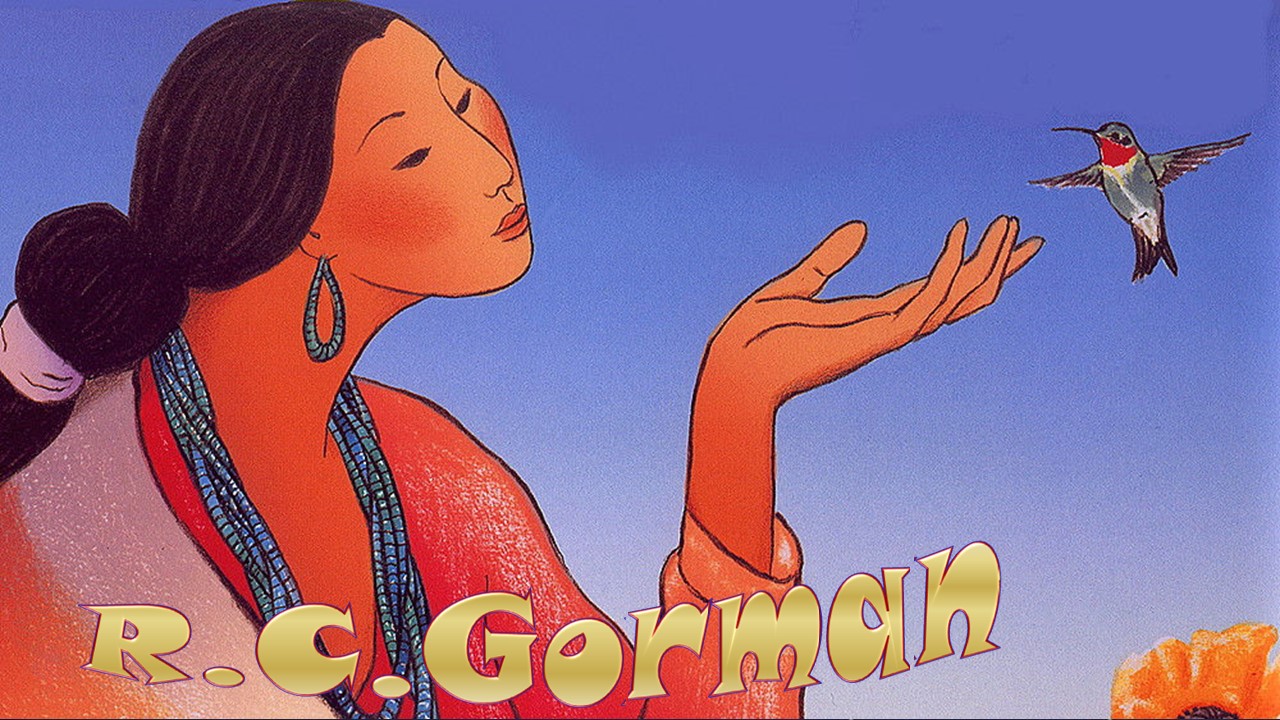Rudolph Carl Gorman 1 (American, 1931-2005) - PowerPoint PPT Presentation
Title:
Rudolph Carl Gorman 1 (American, 1931-2005)
Description:
Rudolph Carl Gorman (1931 –2005) was a Native American artist of the Navajo Nation. Referred to as "the Picasso of American Indian art" by the New York Times, his paintings are primarily of Native American women and characterized by fluid forms and vibrant colors, though he also worked in sculpture, ceramics, and stone lithography. Gorman was born in Chinle, Arizona. His father Carl Gorman was a noted Navajo painter and teacher, who later became a code talker during World War II. Gorman grew up in a traditional Navajo hogan and began drawing at age 3. His grandmother helped raise him, recounting Navajo legends and enumerating his genealogy of artist ancestors. In 1973, he was the only living artist whose work was shown in the “Masterworks of the American Indian" show held at Metropolitan Museum in New York. One of his pieces was selected for the cover of the exhibit's catalog. – PowerPoint PPT presentation
Number of Views:18
Title: Rudolph Carl Gorman 1 (American, 1931-2005)
1
(No Transcript)
2
Rudolph Carl Gorman (1931 2005) was a Native
American artist of the Navajo Nation. Referred to
as "the Picasso of American Indian art" by the
New York Times, his paintings are primarily of
Native American women and characterized by fluid
forms and vibrant colors, though he also worked
in sculpture, ceramics, and stone lithography. He
was also an avid lover of cuisine, authoring four
cookbooks, (with accompanying drawings) called
Nudes and Food.
Rudolph Carl Gorman with self-portrait photo
3
Shawl woman
Mystique
4
Cassandra
5
Blessing way
6
Midnight
7
Navajo velvet
8
Gorman grew up in a traditional Navajo hogan and
began drawing at age 3. His grandmother helped
raise him, recounting Navajo legends and
enumerating his genealogy of artist ancestors.
She kindled his desire to become an artist.
Night stories
9
Esperauza
10
Red bird
11
Ranchos twilight
12
Blue gem
13
Shawl
Gala I
14
Woman with poppies
15
Floria
16
Iris
17
-Woman with lemons
18
- Sunset woman
19
Chile a la mode
- Zia Benita
20
- Natalina
Marigolds
21
Chimayo chilis
La Chilera fragment
22
Zia
23
Yellow woman
Dragon fly
24
Young Taos man
25
The parasol and the cloud
Women of the desert.
26
Woman with hand on hip
Woman with concho
27
Peshlekai
28
Winter etude
29
Sandra's new blanket
Woman with chili peppers
30
Woman shucking corn
Wild woman
31
Woman at the lake
32
Colorado
Beauty way
33
Winter lights
34
First snow Navajo
35
Whispers
Men of Taos II
36
Waterfall
37
Vanessa Chee
38
Indian ladies
Untitled 1981
39
Wild flowers
Mesa visit
40
Taos poppies
41
Luminarias
42
Nightwatch
43
Two women
Three desert women
Frida
44
Two Michelles
45
Twilight
Shiprock
46
Ruby throat hummer
47
Gorman was born in Chinle, Arizona. His mother
was Adele Katherine Brown, and his father Carl
Gorman was a noted Navajo painter and teacher,
who later became a code talker during World War
II. In 1958, he received the first scholarship
from the Navajo Tribal Council to study outside
of the United States, and enrolled in the art
program at Mexico City College. There he learned
of and was influenced by the work Diego Rivera.
He later studied art at San Francisco State
University, where he also worked as a
model. Gorman moved from California to New
Mexico, opening his Navajo Gallery in Taos in
1968. In 1973, he was the only living artist
whose work was shown in the Masterworks of the
American Indian" show held at Metropolitan Museum
in New York. One of his pieces was selected for
the cover of the exhibit's catalog.
48
Text and pictures Internet http//www.firstpeople
.us/pictures/RC-Gorman/Rudolph-Carl-Gorman-Tigua.h
tml All copyrights belong to their
respective owners Presentation Sanda
Foisoreanu
2014
Sound R. Carlos Nakai - Turquoise
World Song For The Morning Star































